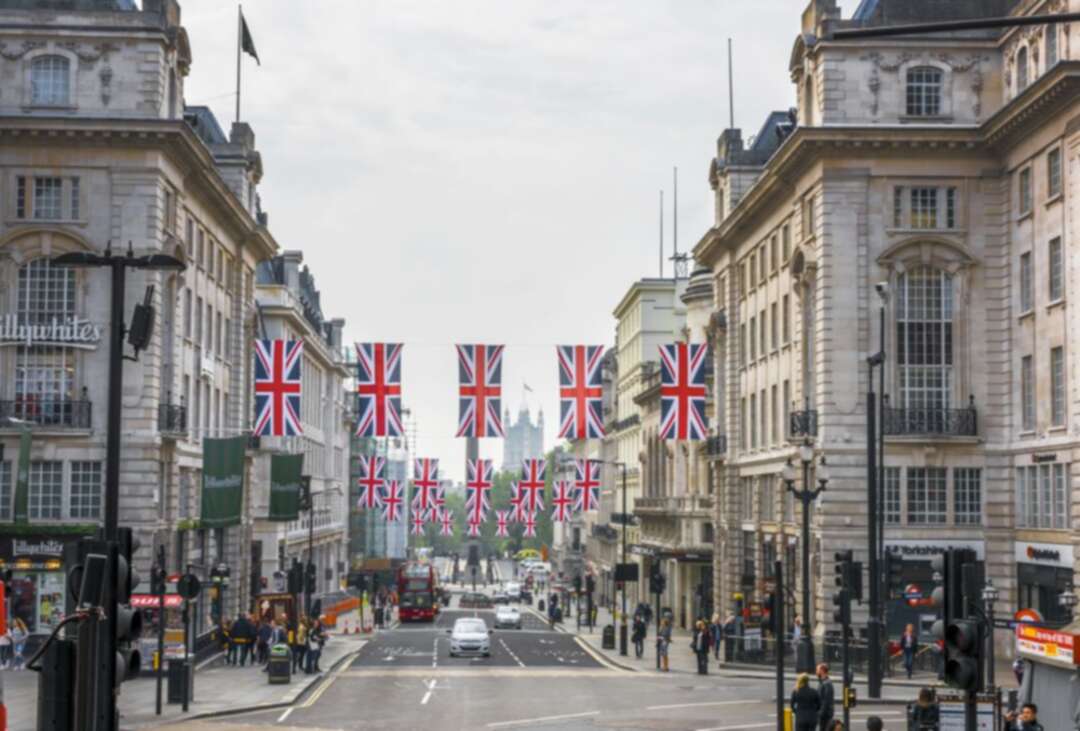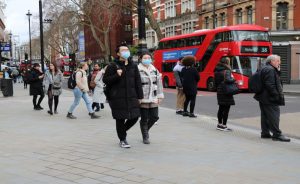-
Britain's car production in the first half of 2021 slumps driven by COVID-19

According to British Society of Motor Manufacturers and Traders (SMMT), the Xinhua reported that Britain's car production in the first half (H1) of 2021 dropped by nearly 40 percent on the five-year average, driven by the COVID-19 pandemic and supply shortages.
The SMMT said data revealed that car manufacturing output in the country was 498,923 units in H1, down 38.4 percent on the five-year (2015 to 2019) H1 average, representing a loss of 311,160 cars worth more than 8.5 billion pounds (11.8 billion U.S. dollars).
The Xinhua said according to the British car industry association, "the performance rounded off a turbulent first six months for UK car production, with the pandemic, new trading rules with Europe and supply issues causing ongoing challenges."
The SMMT said, in June alone, Britain's car factories turned out 69,097 units. "While this was a rise compared with the COVID-depressed June 2020, it still represents the worst June total since 1953 as the global chip shortage, caused by the pandemic, and other factors continued to take a toll on production."
It added, as exports continued to sustain the country's car manufacturing, about 83.4 percent models in H1 shipped overseas, with 51.7 percent into the European Union, 18.8 percent to the United States, 7.8 percent to China.

Meanwhile, the production of battery electric (BEV), plug in hybrid (PHEV) and hybrid electric (HEV) vehicles remained steady in H1 with around 22.6 percent of all cars alternatively fuelled.
"The latest investments into new models and battery production show a bright future is within reach, yet the industry still faces headwinds most notably from global semiconductor shortages and staff absenteeism as a result of staff being 'pinged'," said Mike Hawes, chief executive of the SMMT.
The SMMT said despite the easing of COVID-19 restrictions, manufacturers are experiencing staff shortages due to self-isolation caused by the National Health Service (NHS) Test and Trace app, putting production at risk and being another drag on the sector's recovery.
"Businesses have ensured their facilities are COVID secure but urgent action is needed, such as bringing forward the Aug. 16 target date for exempting fully vaccinated adults from self-isolation and introducing a 'test to release' scheme to support those employees not yet fully vaccinated," added Hawes.
The British government is expected to scrap isolation rules from Aug. 16 for those double-jabbed unless they develop symptoms of the coronavirus themselves.
Meanwhile, the government announced Wednesday that, from Aug. 2, passengers arriving from amber list countries who have been fully vaccinated in Europe and the United States will not have to quarantine or take a day eight test on arrival when entering England.
By reopening quarantine-free travel for travelers who have been fully vaccinated in European countries and the United States, "we're taking another step on the road to normality which will reunite friends and families and give UK businesses a boost", said Britain's Health Secretary Sajid Javid.
To bring life back to normal, countries such as Britain, China, Russia, the United States as well as the European Union have been racing against time to roll out coronavirus vaccines.
Source: xinhua
You May Also Like
Popular Posts
Caricature
BENEFIT Sponsors BuildHer...
- April 23, 2025
BENEFIT, the Kingdom’s innovator and leading company in Fintech and electronic financial transactions service, has sponsored the BuildHer CityHack 2025 Hackathon, a two-day event spearheaded by the College of Engineering and Technology at the Royal University for Women (RUW).
Aimed at secondary school students, the event brought together a distinguished group of academic professionals and technology experts to mentor and inspire young participants.
More than 100 high school students from across the Kingdom of Bahrain took part in the hackathon, which featured an intensive programme of training workshops and hands-on sessions. These activities were tailored to enhance participants’ critical thinking, collaborative problem-solving, and team-building capabilities, while also encouraging the development of practical and sustainable solutions to contemporary challenges using modern technological tools.
BENEFIT’s Chief Executive Mr. Abdulwahed AlJanahi, commented: “Our support for this educational hackathon reflects our long-term strategic vision to nurture the talents of emerging national youth and empower the next generation of accomplished female leaders in technology. By fostering creativity and innovation, we aim to contribute meaningfully to Bahrain’s comprehensive development goals and align with the aspirations outlined in the Kingdom’s Vision 2030—an ambition in which BENEFIT plays a central role.”
Professor Riyadh Yousif Hamzah, President of the Royal University for Women, commented: “This initiative reflects our commitment to advancing women in STEM fields. We're cultivating a generation of creative, solution-driven female leaders who will drive national development. Our partnership with BENEFIT exemplifies the powerful synergy between academia and private sector in supporting educational innovation.”
Hanan Abdulla Hasan, Senior Manager, PR & Communication at BENEFIT, said: “We are honoured to collaborate with RUW in supporting this remarkable technology-focused event. It highlights our commitment to social responsibility, and our ongoing efforts to enhance the digital and innovation capabilities of young Bahraini women and foster their ability to harness technological tools in the service of a smarter, more sustainable future.”
For his part, Dr. Humam ElAgha, Acting Dean of the College of Engineering and Technology at the University, said: “BuildHer CityHack 2025 embodies our hands-on approach to education. By tackling real-world problems through creative thinking and sustainable solutions, we're preparing women to thrive in the knowledge economy – a cornerstone of the University's vision.”
opinion
Report
ads
Newsletter
Subscribe to our mailing list to get the new updates!






















